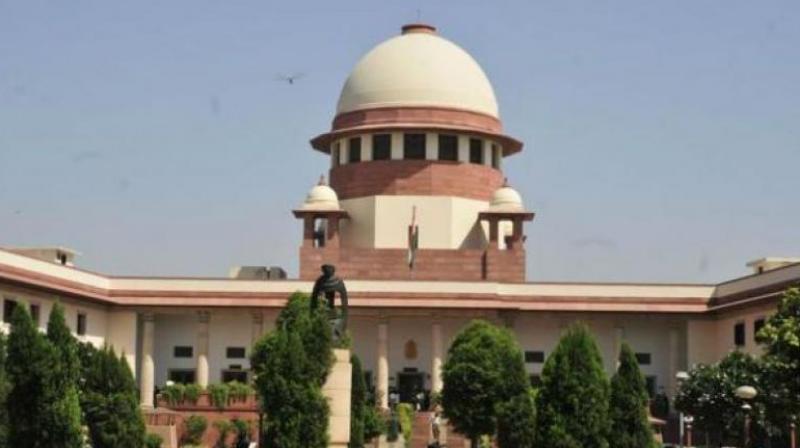Ayodhya verdict: AIMPLB to file review plea against SC verdict by December 9
The Muslim Personal Law Board spokespersons said that the Supreme Court verdict was “self-contradictory.â€

Hyderabad: The All-India Muslim Personal Law Board (AIMPLB) on Sunday decaled that it would move the Supreme Court seeking a review of its verdict on the Ayodhya matter. The executive committee of the board, which met in Lucknow on Sunday, also decided not to accept the grant of five acres of land for building a new mosque at an alternative site since it was against the tenets of Islam.
Though the meeting was scheduled at the Darul Uloom Nadwatul Ulama (DUNU), the headquarters of the board, it was shifted to the nearby Mumtaz Degree College, which the organisers claimed was owing to “efforts of the district administration to stall the meeting.”
Mr Zafaryab Jilani, senior member, AIMPLB, and convener of the All-India Babri Masjid Action Committee (AIBMAC), claimed that the case had been filed in court on behalf of all Muslims, and the board, representing sentiments of the community, wanted to exercise its constitutional rights to file a review petition.
Mr Jilani, in reply to a question, said that Mr Rajiv Dhawan, senior Supreme Court lawyer, would continue as their lawyer and would try to file a review petition within 30 days of the judgment, which would be December 9.
Seeking review without much hope: Madani
Mr Arshad Madani, president, Jamiat Ulama-i-Hind, who attended the board meeting, told reporters that he fully approved of the decision to file a review petition.
“Though we do not have much hope and know that the petition would be dismissed, we would still file a review petition. It is our right,” he said.
Reacting to the Babri masjid case plaintiff Iqbal Ansari’s refusal to file a review petition, Mr Jilani said that the board was exercising its constitutional right and there was no politics in the issue. He claimed that Mr Ansari was “probably being pressured by the district administration to not file a review petition.”
Referring to the need for a change of venue of the meeting Mr Jilani alleged that officials from the district administration had tried to stop the meeting at DUNU, so the venue had to be changed. Members who had arrived at the original venue were taken to the new venue and the media was not informed of the venue, he alleged, while speaking to mediapersons.
The Muslim Personal Law Board spokespersons said that the Supreme Court verdict was “self-contradictory.”
“The court has accepted the fact that Namaaz was offered on site and that idols were forcibly placed at the site on the night on December 22-23, 1949. The SC judges ignored the fact that under Wakf rules, a place of mosque cannot be shifted. There was also no proof of any temple under the domes of the demolished mosque,” they said.

